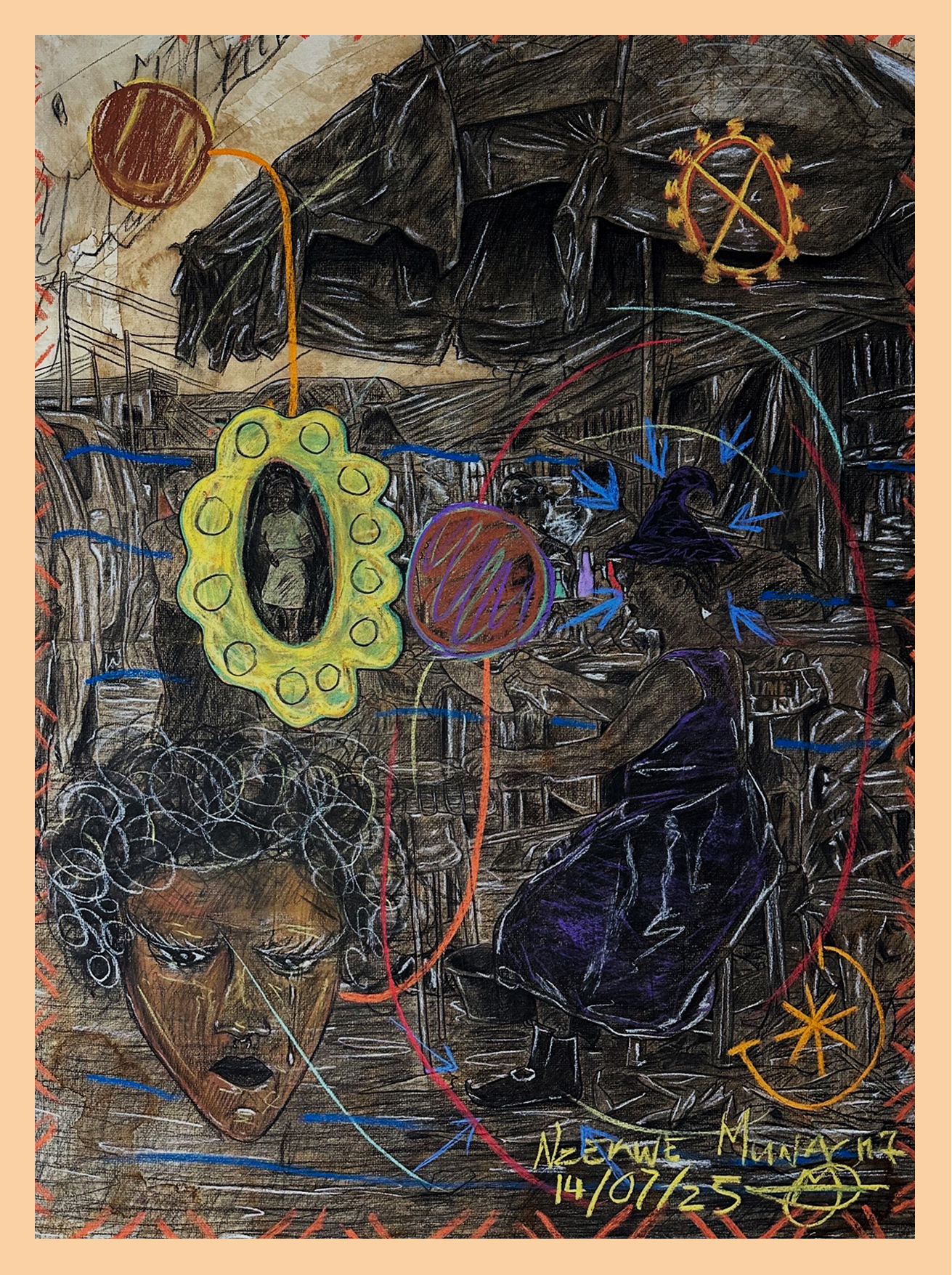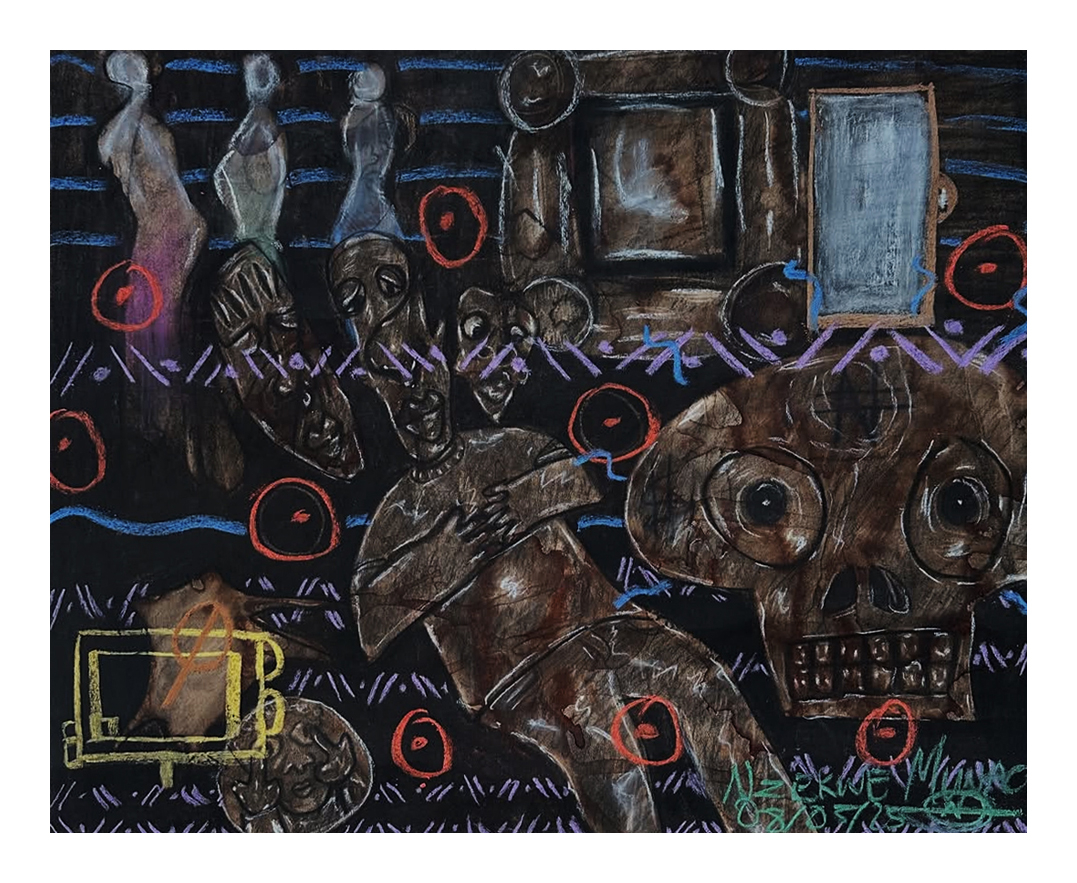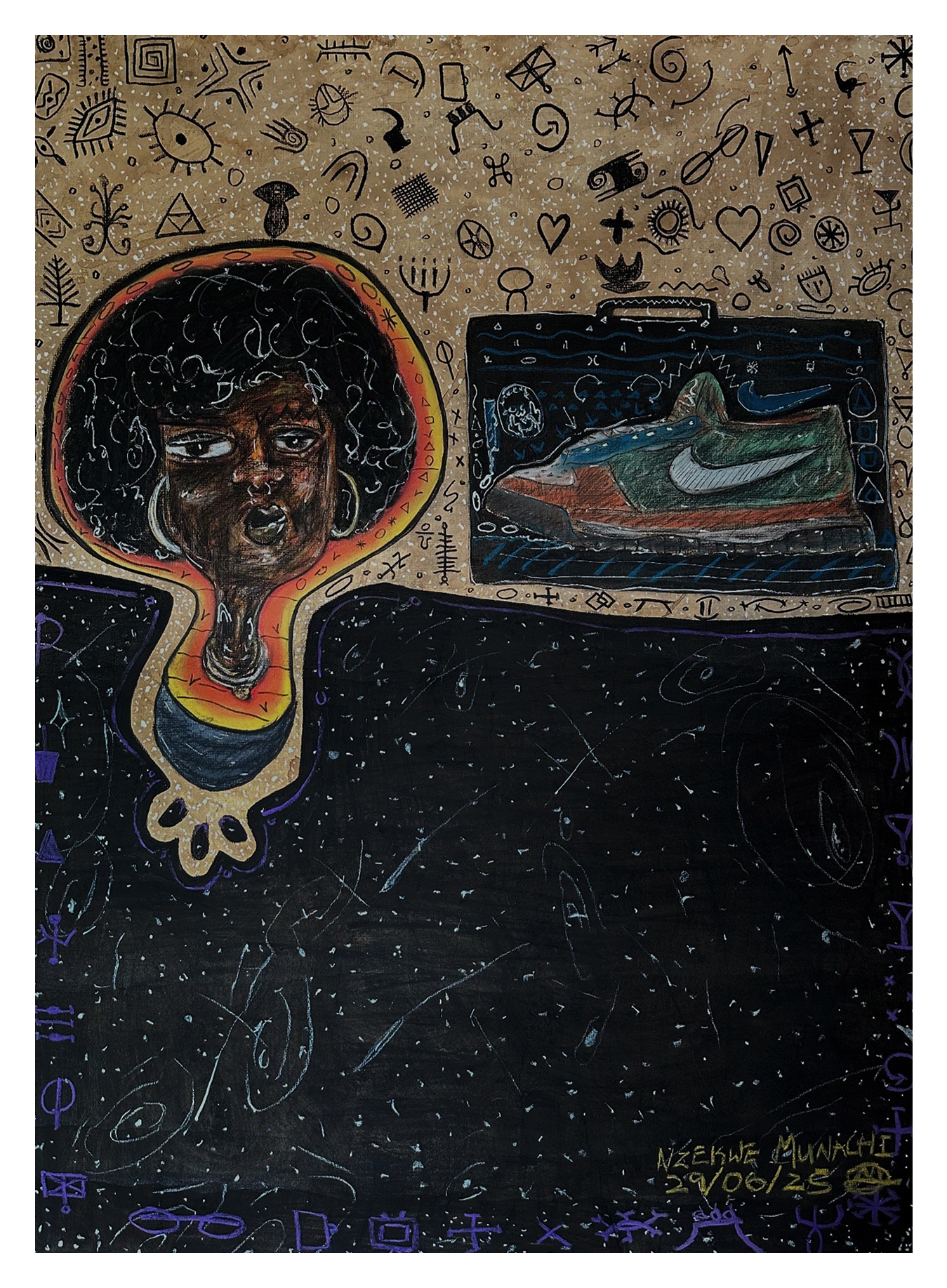Charcoal, Chaos, and Genius: Exploring the Mind of Nzekwe Munachi
EDITOR: Abigail Alfred


Nzekwe Munachi is a visual artist, who creates using various mediums like charcoal, pastels, and watercolor. His art often reflects on themes of African identity, colonialism, and social issues in Nigeria. His socials showcase glimpses of his broader visual artistry, hinting at growth into mixed media, illustration, or spatial design. His professional versatility and engaging online presence mark him as a creative force to watch. We had a moment to chat with him about his art style, and a few other things.
How did you discover this (weird and unique) style?
I reached out to my dad about me doing art and asked if he could connect me to someone who
is successful in art and architecture and who could mentor me. When I got back to Abuja, I met
with this man, Mr. Nonye Ikeagu. He asked me to bring my art works with me and when he saw
them, he said,
“Your work is nice, but that’s the worst thing your art should be”. That piece of advice has stuck with me and it reminds me that there is always room for growth in my art.
He said that my work should be able to catch the attention of viewers and also leave an impact
on their minds. He showed me watercolors and taught me to use different mediums. My options
expanded and that was where I began to find my own style.

What medium do you use to create your art?
I absolutely enjoy, and prefer using charcoal for my art, but I also use other mediums like pastel, and watercolor. But charcoal is what I use the most.
What era do you think your art is most suited for, and do you draw inspiration from that
era? I honestly don’t think that my art is better suited for any era than this one we’re in. My art is about me and I belong here, in this era. So, my art belongs here too.
What aspect of the creative process do you find most meditative?
The making of my art. I talk to myself while I work, I pray, I meditate. Creating art is like therapy
for me, it’s soothing. So, the process of bringing my ideas to life is definitely the most meditative
aspect for me.

The faces in your art, are they real people? Your art tells stories, but are these real stories of real people or do you draw whatever inspires you in the moment?
Yes, they are real people. Some, I’ve met. Most of them, I do not know. I do street photography also, and these pictures have a story which I inculcate in my art. My painting, Mazi Bruce, for example, was done based on an incident that happened to my friend and I. I can’t talk about it, but yeah all of my art is telling a story about real people and the faces are real.
What’s the most unusual piece of art you’ve created?
My most unusual piece of art has to be Shocking Inadequacy, which is a painting I did of a young schoolboy in a toilet. The lore behind it makes it even more interesting. I was frustrated by the lack of facilities in Nigerian schools, and so it made sense for me to make that piece of art with the pit toilet that shows just how backwards we are when it comes to education. While it might look unusual, it is a reflection of the society we live in.
Do you do art for passion or for money?
I haven’t started taking commissions for now, but I do my art because I love being an artist. It’s a passion that I hope will bring me money in the future.
What’s the funniest or most bizarre or unusual thing someone has ever said about your art?
When people compliment my art and they actually relate to the things I put out, it’s surprising to me but also validating because they make me believe that I’m not mad. With the type of art I do, sometimes I wonder whether people see me as normal, so their validations mean a lot to me.
Would you consider yourself a genius? Why?
Yes, I do consider myself a genius–a young genius. Genius simply means having exceptional
intellectual, or creative ability. If you do something often, for a long time, you become really good
at it. In my art, I get better and better everyday. So, I do consider myself to be a genius.

How do you decide when a piece is truly “finished”, and what internal signals guide that decision?
You just know in your heart. Some work, you already plan for before you begin. But for the ones where you start without a specific plan in mind, when it’s finished you just know. It’s like when you’re adding salt to your food with no measurements, but somehow, you know exactly how much salt is needed.


